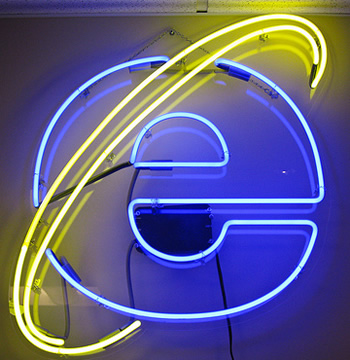Recently, Microsoft's decision to equip Internet Explorer 10 with Do-Not-Track and enable it by default has raised quite a few eyebrows. Unsurprisingly, the Association of National Advertisers is the latest organization to express its "profound disappointment" regarding Microsoft's choice. The ANA – a veritable who's who of International corporations – chided Microsoft in this open letter addressed directly to Microsoft CEO Steve Ballmer.
Microsoft's move will hurt content creators – that's appears to be the centrifugal glue which holds the ANA's argument together. By further anonymizing visitors on an opt-out basis instead of having them opt-in, the ANA believes Microsoft will make advertising less valuable. By damaging advertising revenue, the ANA says unsuspecting web surfers will inadvertently undermine much of the quality, ad-supported content they currently enjoy online.
That may not seem like an unreasonable argument, but long-time tech writer Ed Bott thinks a DNT-driven webpocalypse is a somewhat disingenuous premonition. Bott breaks down the ANA's letter, making note of its inconsistencies and varying shades of truthfulness. The result? Although the ANA claims IE10 will spell doom for the web, we shouldn't be thoroughly convinced.
Apache, another detractor of Microsoft's initiative, was also mentioned by the ANA. Apache is the open-source server software which powers nearly two-thirds of the web. The organization accused Microsoft of performing a "deliberate abuse of open standards" – a quote which the ANA gladly cited in the letter.
Chrome and Firefox have their own approaches to DNT. However, unlike IE10, users must explicitly enable the feature since it is disabled by default. Incidentally, popular ad-blocking extension Adblock Plus has taken a softer approach to online advertising, allowing text-based ads unless explicitly told not to.
Users can test whether or not their DNT is enabled by visiting Microsoft's DNT test page.
